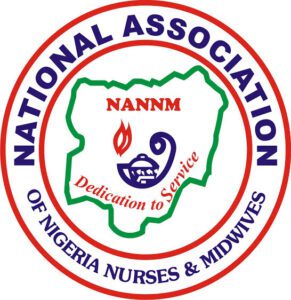
First Lady tasks stakeholders to engage Govt on breastfeeding policies
Wife of the President, Mrs Aisha Buhari, on Thursday urged stakeholders to engage government towards formulating policies that would promote breastfeeding as a practice in the country.
Buhari made the call at the commemoration of World Breastfeeding Week with theme, ‘Step up for Breastfeeding: Educate and Support,’ by Staff of State House Clinic in Abuja.
The First Lady, represented by Rukaiyatu Gurin, Senior Special Assistant to the First Lady, said that breastfeeding contained numerous natural nutrients.
“I urge you to consolidate your role as custodians of breastfeeding, to engage government towards making policies that protect and promote breastfeeding as a practice.
“Breastfeeding provides babies with natural food that contains all the nutritional values that babies require as a natural remedy that protects the baby from all kinds of diseases,” she said.
She called for stronger collaboration among actors to strengthen the world chain of breast feeding.
“Let us all join our hands to educate, support and encourage our mothers to breastfeed their babies sufficiently for a healthier nation.
“Our fathers and daddies have a very great role to play by providing our mothers with good nutritional foods to feed the baby.”
Buhari, however, affirmed her support for breastfeeding which she said was key to nation building.
“As the First Lady of the Federal Republic of Nigeria, I am also a key actor, I pledge my support to uphold and promote breastfeeding among others.
“It is important to pay emphasis on educating mothers on the advantages of breastfeeding; this process needs to involve all stakeholders, including fathers, family members and the community.”
Mr Tijjani Umar, Permanent Secretary State House, stated the administration’s commitment to the promotion of exclusive breastfeeding.
Umar, represented by Alhaji Bukar Mala, assured of their continued support to nurture the practice of exclusive breastfeeding for both healthy mother and child.
“The State House administration has been committed to the initiative by supporting the staff through training, workshop and other activities of breastfeeding support group.
“Additionally, the administration has made a creche available at the state House Clinic to support staff who are nursing babies to breast feed.”
Presenting a lecture on breastfeeding, Dr Otuneye Adekunle, Head of Department (HOD) Paediatrics, National Hospital, Abuja said that breastfeeding was antidote to maternal morbidity and mortality.
Adekunle also identified intellectual development as one of the greatest benefits of breastfeeding.
“The principal benefit of breastfeeding to a mother and child is that breastfeeding gives the child a better chance of survival.
“It also says that a child that is breastfed has a better chance of cognitive development, meaning that better performance in school, better performance concerning IQ.
“And for the mother, not only does it reduce child mortality, it also reduces maternal mortality and illnesses in the mother.
The Medical Practitioner also dismissed misconceptions about breastfeeding, saying they were not based on facts.
“There are so many misconceptions about breastfeeding and most of them are myths, they are not founded on any real fact.
“For instance, baby does not get water, 90 per cent of breastfeeding is water, breastfeeding is not what makes the breast to sag, with age changes occur.
“A mother that breastfeeds a child will not have a sagging breast because of that.”



